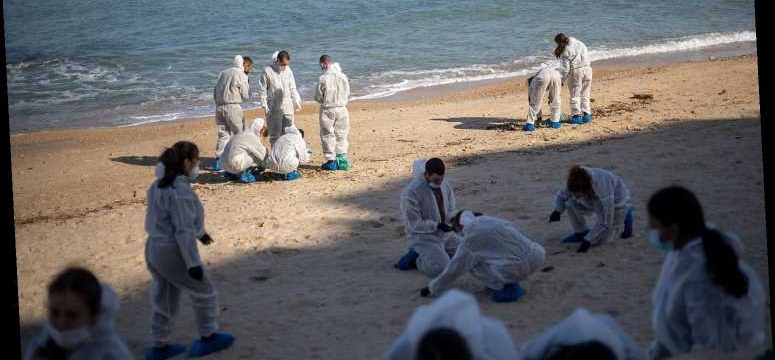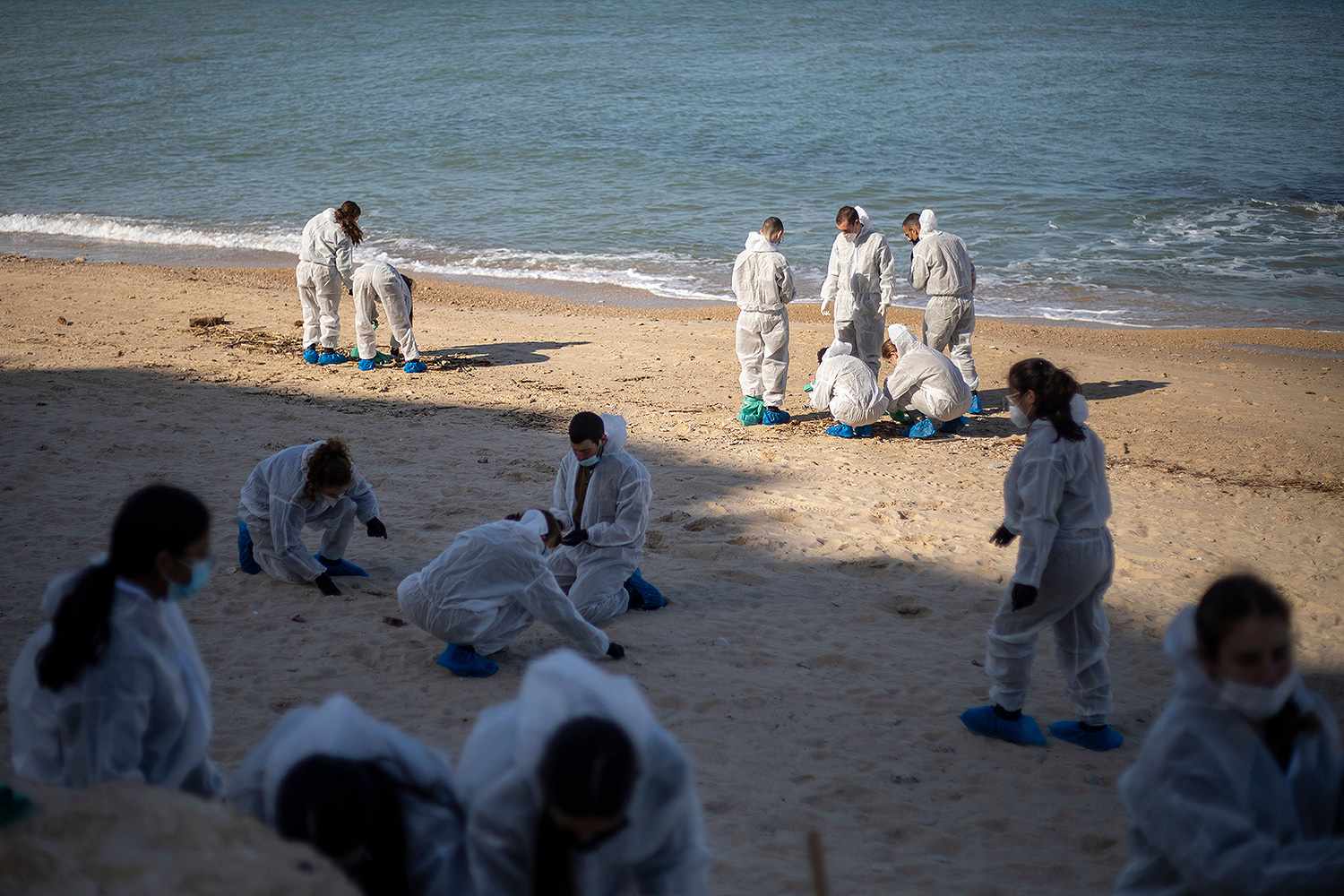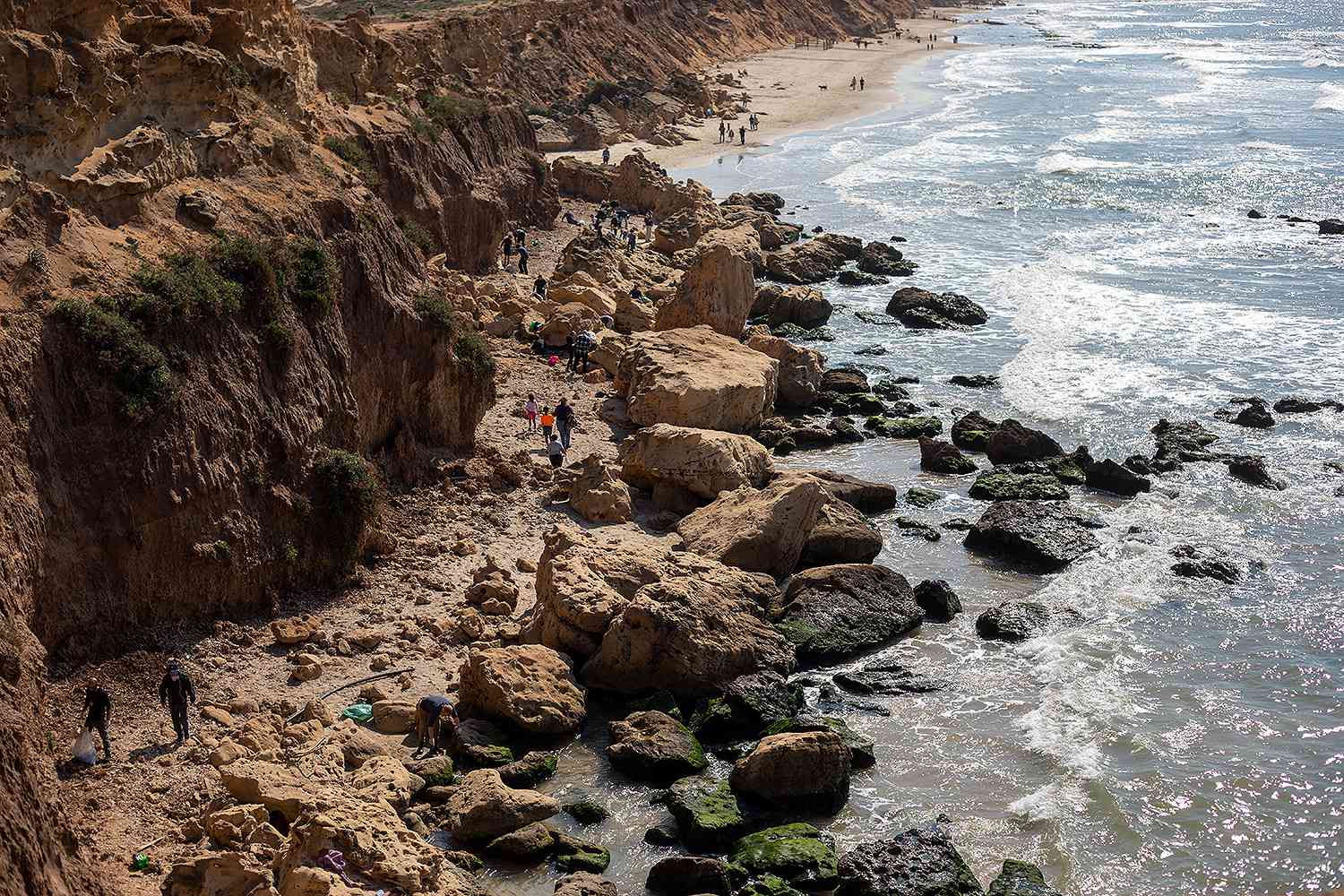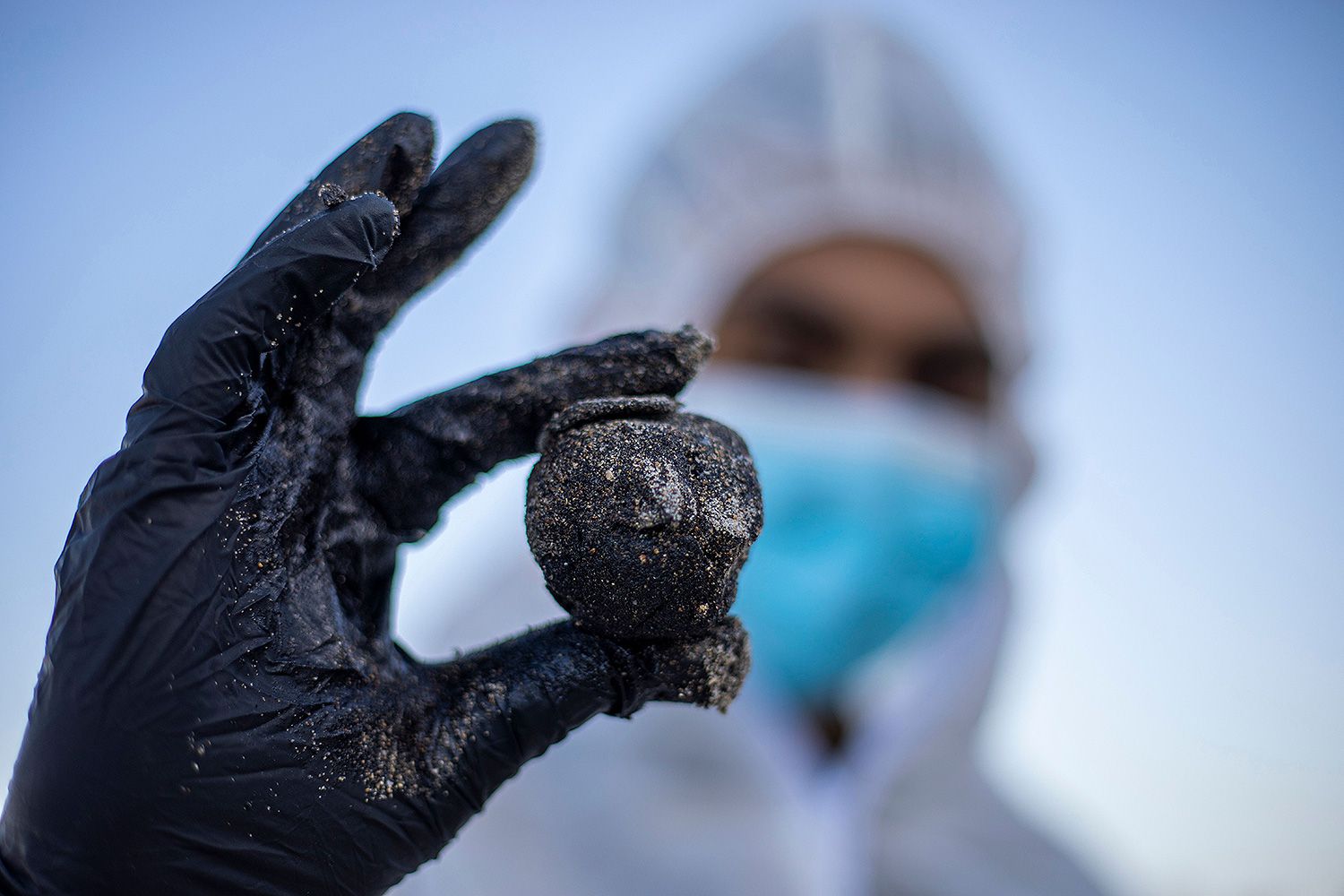Israel is facing its "most serious ecological disaster in recent years" after an oil spill occurred in the Mediterranean Sea, according to officials.
Last week, dozens of tons of tar spilled onto Israel's Mediterranean coastline following stormy weather in the area, the nation's Ministry of Environmental Protection confirmed in a statement.
Israeli officials have urged the public to refrain from going to beaches while they begin extensive cleanup efforts and work to rescue injured wildlife in the area.
"The disaster we are witnessing in recent days on the beaches of Israel is the most serious ecological disaster in recent years, and its consequences we will see more years ahead," the Israel Nature and Parks Authority wrote in a post on Facebook Saturday.
"Unfortunately… we learned that the tasks in the field are many, and will last for a long time," they continued. "The event is not over yet, and tar still continues to emit to the shores."
The tar first began "washing up and contaminating the beaches" on Wednesday, according to the Ministry of Environmental Protection.
Israeli and European authorities are currently investigating the situation, but believe a ship spilled hundreds of tons of oil in the Mediterranean Sea, NPR reported.
They are now reviewing satellite images of ships that passed through the area to determine who was behind the deadly spill, according to the outlet.
On Sunday, the Ministries of Environmental Protection, Interior, and Health closed down beaches from Rosh Hanikra to Zikim Beach in the Hof Ashkelon Coastal Council until further notice.
In the meantime, the Ministry of Environmental Protection said representatives from local authorities, environmental towns associations and EcoOcean gathered to assess the situation and determine a plan of action.
Due to the "semi-solid or completely solid" consistency of the tar, officials said it would have to be "removed manually, with the oily and sand debris being separated from regular debris as much as possible."
So far, thousands of volunteers — all of whom were trained — headed to the beaches to assist with cleanup efforts, according to the Ministry of Environmental Protection.
Wildlife officials and volunteers, including Israel's National Sea Turtle Rescue Center, also rushed to the scene to help the creatures that were injured by the oil spill.
Israel's National Sea Turtle Rescue Center said in a post on Facebook that they've "received and treated 10 injured sea turtles in the last two days, of which 5 are covered with tar."
"Live turtles must come to treatment at the rescue center as soon as possible, while the dead turtles are important to document so that we learn the scope of the disaster," they added.
Sea birds and fish have also been affected by the oil spill, as shown in heartbreaking photos obtained by local outlets.
Additionally, NPR reported that ecologists are concerned about a reef-building snail called Dendropoma petraeum, whose population was already in decline and at risk due to global warming.
In the days since the spill, Minister of Environmental Protection Gila Gamliel said the situation has begun to "dramatically improve," though there is still work to be done.
"The tour flight we took out this morning revealed that no more tar stains were seen in the sea which is an encouraging condition," Gamliel announced in a press release Sunday.
"I know that everyone wants to help, but tar is a dangerous substance! It is imperative to act carefully and responsibly," Gamliel added.
According to the Ministry of Environmental Protection, another storm is set to hit the area on Tuesday, which could move lumps of tar on the rocks of beaches to other nearby ones.
Despite the risk of cleanup complications, officials are carrying on with their efforts while also vowing to find the ship behind the deadly oil spill.
"We are making every effort to find those responsible for the disaster, and we will bring to the government's approval tomorrow a proposal for resolutions to rehabilitate the environment," Gamliel wrote in a tweet. "With a joint effort, we will return the situation to its former state and open the bathing season in time."
Source: Read Full Article






